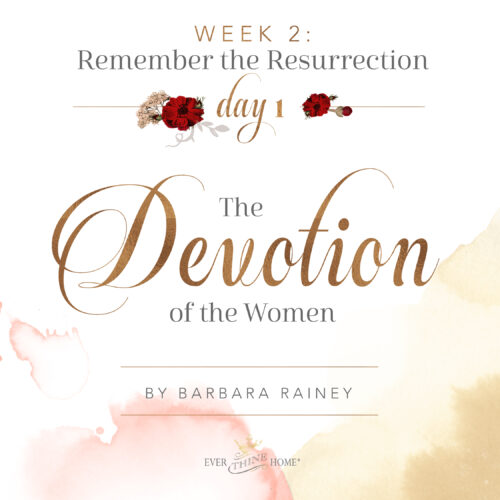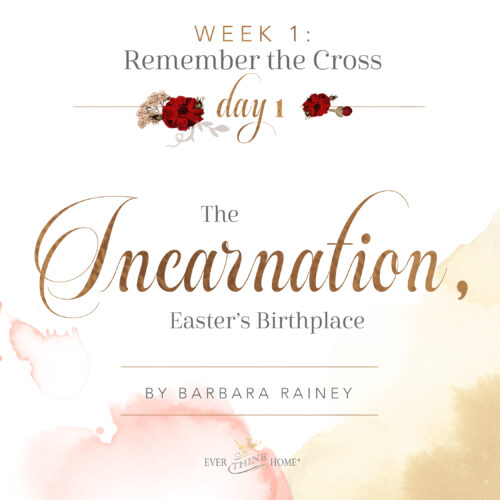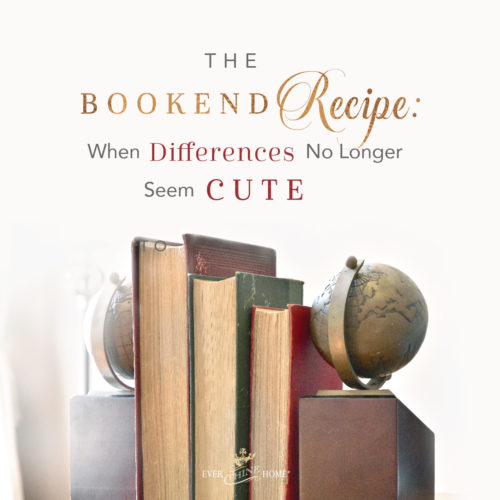 My favorite book I’ve ever written is Letters to My Daughters. I still love it because it’s a truly beautiful book with art and calligraphy throughout the interior. I also love it because it’s a summary of all the lessons I’ve learned in the married years of my life; therefore it’s the essence of who I am.
My favorite book I’ve ever written is Letters to My Daughters. I still love it because it’s a truly beautiful book with art and calligraphy throughout the interior. I also love it because it’s a summary of all the lessons I’ve learned in the married years of my life; therefore it’s the essence of who I am.
The book is based on questions about marriage I gathered from my four daughters, my two “grafted in” daughters who married my sons, and many of their friends, and it’s dedicated to all of them by name, which I also love. It was a very satisfying book to work on, both in the content and in the creative graphics.
This book is now available in paperback, and this week’s post is an excerpt. I hope and pray this letter will help your marriage, and if you want more be sure to get the book! It makes a great gift for anyone engaged to be married. Over 60,000 copies of the hardback sold, so I’m immensely grateful to Andy McGuire at Bethany Publishing for giving it more life in the new paperback version.
Dear Mom: Okay, I get that we’re supposed to embrace our differences in marriage, and why. Obviously I want that, more than anyone. But what do you do when things you once thought were cute aren’t so cute anymore? What do I do when he is now just irritating me? I need to try something!
Dear daughters:
One of your dad’s favorite quotes is, “Love is blind, but marriage is an eye-opener.” Reality sets in when those unique qualities that initially attracted you now feel irritating and difficult. It’s all about perspective.
Some of the differences I encountered were the ways we handled money, the ways we spent our free time, the ways we each expressed our emotions, and the ways we each felt about sex. We both soon learned they required more than just a one-time dialogue. A lifelong conversation was more like it. And they’re still going on today …
It’s not only that we are different. How we express those differences create clashes. It’s the clothes on the floor, the loudly shut doors, the toilet seat left up, the disaster left in my car, the forgetting to call when he’s late.
Like misreading one teaspoon of salt on a recipe as one tablespoon of salt, how we interpret his words or actions makes or ruins the recipe. When I interpret his clothes left on the floor as a message that says “You are my servant,” I believe the worst. But that thought never crossed my husband’s mind. It was just a bad habit.
I’ve learned that successfully blending the ingredients of our lives takes years and years of practice. Not weeks or months.
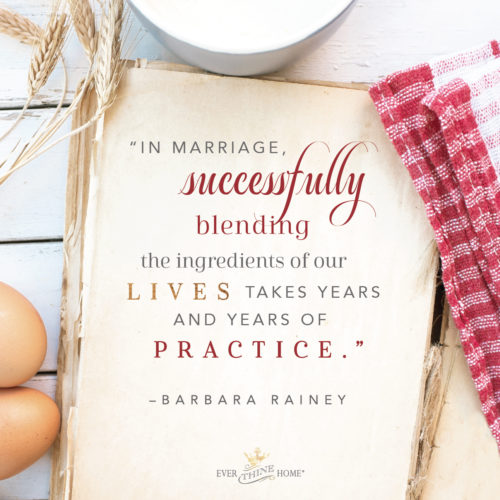
It means when the clothes or towels are left on the floor again, I choose to believe my husband did not intentionally neglect to pick them up just to create more work for me. Believing the best means I don’t misread his actions as a personal affront toward me. I also don’t become arrogant and assume that just because I don’t leave the floor trashed (in my humble opinion), I am superior to him. We’re just different.
Since he and I are cooking in the same kitchen in life, we need to find ways to cooperate, to believe the best about each other, to invite conversation while we work at this pot of stew called marriage. The temptation—when a recipe calls for another seemingly impossible mixing of differences—is to give up in resignation or to quit the marriage entirely.
One of my favorite verses says, “Nothing is impossible with God.” It’s helped me in countless moments of failure to not quit, to pull on the chef’s coat and remember respect and honor. You and your husband are a team, chef and sous-chef. Believe the best, keep talking about your differences, and don’t quit on that recipe! Deliciousness awaits, in time.
Over the years I’ve acquired a stack of go-to recipes that always win: brisket, cheese grits, rice pudding, my grandmother’s pound cake recipe, and many more. A no-fail marital recipe that we’ve used for years is the “bookend principle.” It’s a recipe for sweetening those hard-to-swallow conversations.
Just as bookends are used to prop up books that contain truth, so your dad and I reminded each other of our love, loyalty, and complete acceptance at both ends of difficult discussions: “I love you, and I’m committed to you. I will work this through with you so we can build a better marriage.” The security of those bookends, affirming that we believe in the best for our marriage, has always made the difficult truth much easier to hear.
My husband and yours need to frequently hear words of commitment and acceptance. And you do, too. Remind each other of your love. Tell him that you’d choose to marry him again. Tell him you are grateful for him. Thank him for making you laugh, for caring about your well-being, for trying hard, for going to work each day, for taking out the trash, for being spontaneous, for not quitting or giving up on you or your marriage.
Find those positives and tell him what you like about him. Conversations about differences and areas of conflict are easier to process when supported by bookends of abundant love and encouragement.
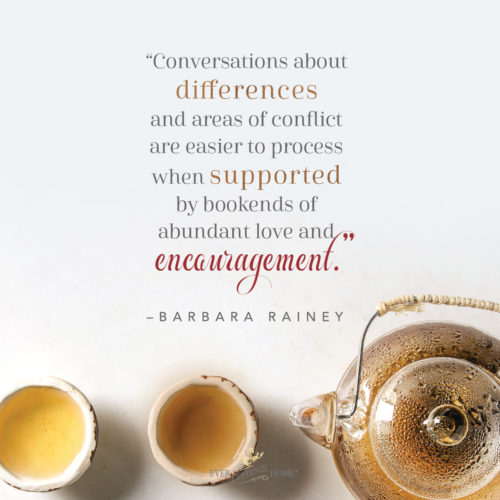
Remember:
- Use the bookend recipe often.
- Believing the best is a choice. Make it often.
- And keep the conversations going. Never give up. Never stop talking.
- Differences will be with you for life. Focus on the big things like appreciating the soul of your husband, his heart, his desires to grow instead of focusing on the little things that irritate.
Praying you will remember that nothing is too hard for God,
Mom
This post was adapted with permission from my book, Letters to My Daughters: The Art of Being a Wife, ©2016, Bethany House Publishers. If you enjoyed reading this, you’ll find many more letters in the book about different issues that come up in marriage.

